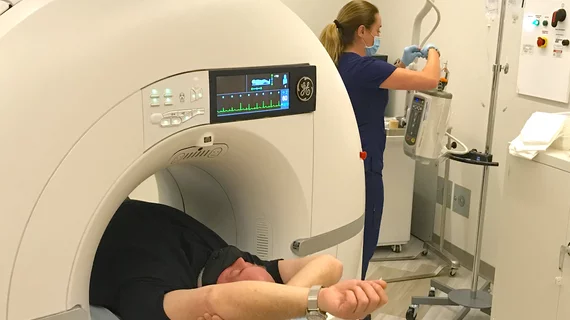‘Relatively new’ contrast vendor releases second generic agent
A global tech and pharma supplier that introduced a generic equivalent to GE Healthcare’s Visipaque during the height of the 2022 contrast shortage has begun offering a substitute for Guerbet’s Dotarem.
The German company Fresenius Kabi, widely known as a dominant presence in the dialysis marketplace, says its gadoterate meglumine injection is FDA-approved for use with adult and pediatric brain and spine MRI.
The gadolinium-based solution is intended to help detect and visualize anatomic areas that may be affected by abnormal vascularity or by blood-brain barrier dysfunction, the company says.
In announcing the drug’s availability Oct. 4, Fresenius Kabi said it’s relatively new to the contrast-media market but pleased to expand its support for the radiology community.
“Contrast agents are vital to patient diagnosis, and the addition of Fresenius Kabi Gadoterate Meglumine will provide hospitals and clinics across the U.S. with more high-quality choices to support patient care,” added John Ducker, president and CEO of Fresenius Kabi USA, which is headquartered in Lake Zurich, Illinois.
The company notes that, as a macrocyclic ionic gadolinium-based contrast agent, gadoterate meglumine “offers the strongest bond between the gadolinium atom and the chelate compared to other GBCAs. This greater stability means that the gadolinium has a higher likelihood to be excreted from the body as opposed to separating from the chelate and being retained in the body.”
The company entered the U.S. contrast market in July with its launch of generic injectable iodixanol as a substitute for Visipaque.
Fresenius Kabi’s full Dotarem-alternative announcement is here.

